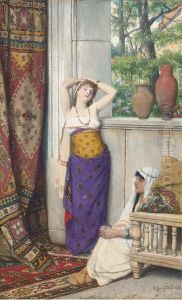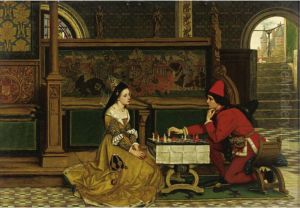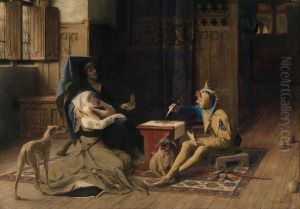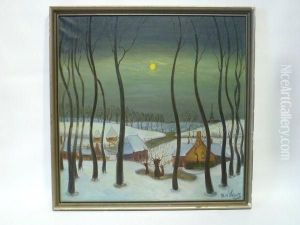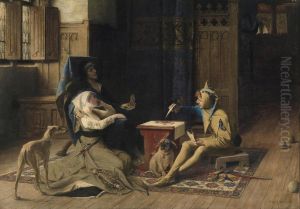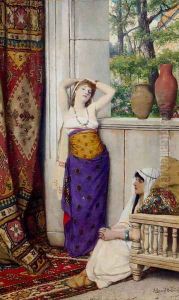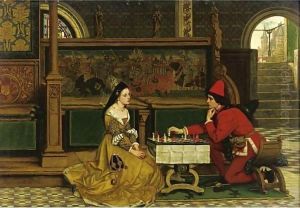Albrecht Frans Lieven Vriendt Paintings
Albrecht Frans Lieven De Vriendt, commonly known as Albrecht De Vriendt, was a notable Belgian painter and a key figure in the Romantic-Historical school of painting during the 19th century. Born on December 17, 1820, in Ghent, Belgium, he was part of a family with a rich artistic heritage. His father, Julien De Vriendt, was a painter, and his brother, Juliaan De Vriendt, also pursued a career in the arts as a painter and engraver. This artistic environment played a significant role in shaping Albrecht's future.
De Vriendt received his initial training from his father before enrolling at the Royal Academy of Fine Arts in Ghent. His education continued in Paris, France, where he was influenced by the works of French Romantic painters. De Vriendt was particularly drawn to historical and biblical subjects, which would become the hallmark of his career. His passion for history and his skill in depicting it on canvas earned him recognition and commissions for grand historical compositions.
In 1845, De Vriendt won the prestigious Prix de Rome for painting in Belgium, which allowed him to travel to Italy. There, he studied the art of the Renaissance and the Italian masters, further enriching his technique and understanding of historical painting. Upon his return to Belgium, he continued to work on large-scale historical pieces.
Throughout his career, De Vriendt remained committed to the Romantic sensibilities of emotion and drama, often contrasting them with the rise of Realism. He was a prolific artist whose works were exhibited widely, including at the Brussels Salon. De Vriendt's paintings are characterized by their detailed historical accuracy, vivid portrayal of characters, and dramatic use of color and light.
Albrecht De Vriendt's contributions to Belgian art were significant, and he was a respected figure among his contemporaries. He passed away on September 5, 1900, in Antwerp, Belgium. His works remain a testament to the Romantic-Historical genre and continue to be appreciated by art historians and collectors for their emotive storytelling and technical mastery.
